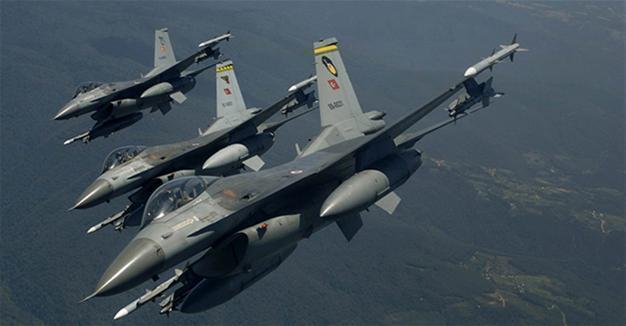Turkey will monitor truce from Eskişehir, Russia from Hmeimim air bases
Serkan Demirtaş - ANKARA
 Turkey and Russia will establish joint monitoring centers in the Eskişehir Main Air Base in Turkey and Hmeimim Air Base in Syria to closely follow the implementation of a cease-fire between the Syrian regime and opposition groups, a senior Turkish official has said.
Turkey and Russia will establish joint monitoring centers in the Eskişehir Main Air Base in Turkey and Hmeimim Air Base in Syria to closely follow the implementation of a cease-fire between the Syrian regime and opposition groups, a senior Turkish official has said. “We, as Ankara and Moscow, will follow the cease-fire process together. We have already been working very closely in the recent month. We will monitor from the Eskişehir base and they will from their Hmeimim base. But our ground forces will also keep track of developments and inform both our monitoring centers,” the official told Hürriyet Daily News on Dec. 30.
In an interview with daily Hürriyet, Foreign Minister Mevlüt Çavuşoğlu on Dec. 29 confirmed the establishment of the joint monitoring centers between Turkey and Russia as guarantor countries of the agreement between the regime and the opposition and said a hot line between the Turkish and Russian air bases would be established to coordinate the truce process and investigate any potential violation.
The Bashar al-Assad regime and the opposition groups have agreed to extend the ceasefire to all of Syria and to launch fresh political talks in Astana on Dec. 29 after Turkey and Russia exerted great efforts through intense diplomatic relations. The ceasefire went into force on Dec. 30.
Most important success in the last 6 years
The most important point in the agreement provided between the fighting parties is the fact that both their political representatives and commanders have expressed their approval to the ceasefire, the source said.
“This may be described as the most important success in six years of the Syrian unrest. They have also agreed not to expand territories under their control. This is very important, if this process can go smoothly, we will come up with a vision for peace,” the source added.
Astana talks set for Jan 23
The second agreement, reached on Dec. 29, is about commencing negotiations between the regime and the opposition for a political transitional period that would end years of conflict in Syria.
According to the document signed by the two parties, they will sit on a table along with the three guarantor countries –Turkey, Russia and Iran- to discuss a road map for a negotiated solution. It also refers to Resolution 2254 of the United Nations Security Council and Geneva Communiqué that stipulates a transitional period in Syria.
In such a case, there would be no problem in implementing the cease-fire, the Astana talks are expected to take place on Jan. 23, the source said. However, before that, Turkish and Russian officials will come together either on Jan. 8 or 9 to discuss the developments in the field and get prepared for the Astana process.
“Heads of nations shall not be expected to attend the first round talks. It may not even be at a foreign ministerial level. First, we should see the composition of two sides’ delegations. Details will become clearer in the coming days,” the source said.
UN should also attend
Along with three guarantor countries, Turkey also wants the participation of the U.N. in the Astana talks. Çavuşoğlu and Turkey’s top diplomats have been in close dialogue with U.N.’s Syria Representative Staffan de Mistura to provide UN’s possible involvement to the process.
Turkey’s military operations will continue
As the ceasefire agreement excludes groups listed as terror organizations by the U.N. Security Council, meaning the Islamic State of Iraq and the Levant (ISIL) and al-Nusra, Turkey’s ongoing Euphrates Shield operation will continue as planned, the source stressed.
















